Research
Energy and environmental economics are our main research areas. Conducting experimental economic research, we link problems of basic economic research with application- and practice-oriented energy economics questions. Our activities are directed both towards demand and market research oriented problems of energy markets, and towards the mapping and analysis of energy systems.
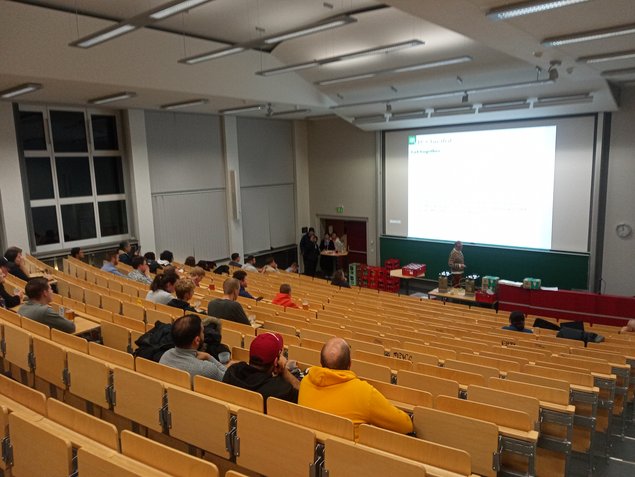
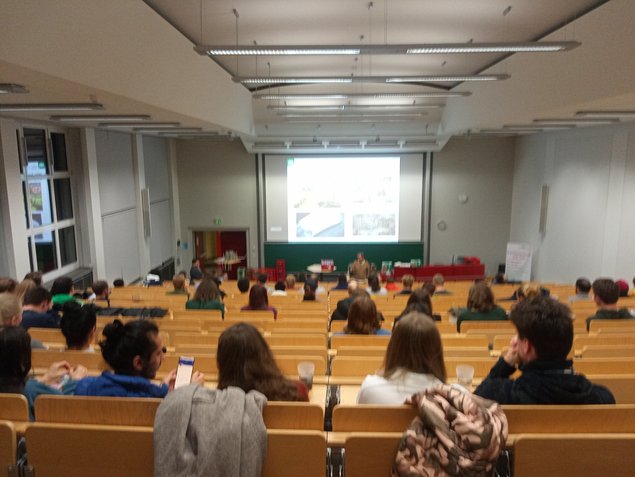
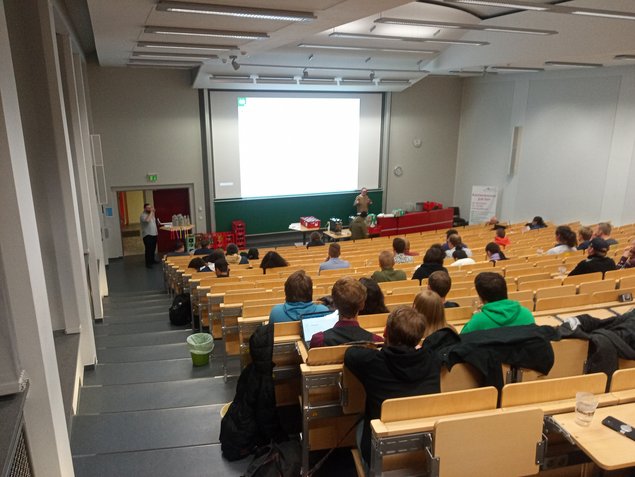
Deontological moral theory
On the occasion of the Kant Year, we deal with the question, increasingly discussed in behavioral economics, whether and to what extent the contradiction between consequentialist and deontological moral theories can be resolved. deontological moral theories is relevant for economic models of individual behavior. A dissertation project in our department and another interdisciplinary research project are investigating possible contradictions between deontological and consequentialist motivation,
Circular Economy
You can listen to or watch our contributions to the social discussion on the transformation to the Circular Economy in the stream of this discussion organized by the Volkswagen Foundation on NDRInfo.
Link: Discussion on the transformation to a circular economy
Heat and energy transition
As a member of the "Energy Transition of the Built Environment" working group in the Energy Systems of the Future (ESYS) academy project of the German Academy of Science and Engineering (acatech), Roland Menges contributes his expertise on current issues relating to the heat and energy transition.
Economy for the common good
A book project by Roland Menges and Michael Thiede, motivated by discussions with students in the lecture "Economy for the Common Good", has been published with a (foreword by Prof. Gesine Schwan) has just been published by Springer with the title "Die Ökonomie des Gemeinwohls".
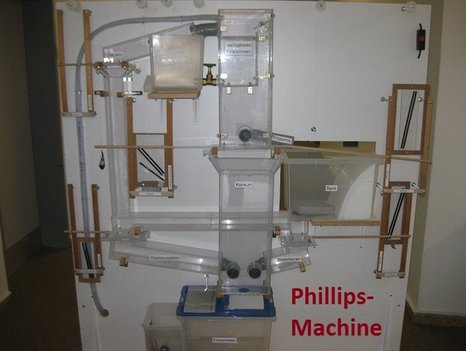
Phillips machine
The Phillips machine is a hydromechanical device developed in the 1940s by Alban William Phillips to visually illustrate the workings of an economy. It shows the relationship between the flow of money, inflation and unemployment. This topic is covered in chapter 7 of Blanchard and Illing's Macroeconomics.
Link in Wikipedia: The Phillips machine
Research projects
Research on the social acceptance of the energy transition
The aim of the research and development project AKZEPTANZ (ACCEPTANCE) is to derive statements on the social acceptance of the energy transition on the basis of a systematic recording of climate protection preferences at the individual level. It thus combines ethical-normative considerations with empirical investigations of individuals' real behavior based on economic incentives and social considerations.
For more information, please visit: AKZEPTANZ research project
Innovative methods for basic economic research
How do energy policy instruments affect the decision-making behavior of citizens? How fair do they perceive these instruments to be? Answers to these questions are particularly important for the political design of the energy transition. Previous research has already been able to make initial, empirically sound contributions to this with the help of new methods of experimental game theory. The approach is as follows: test subjects are given free access to certain information and must then make decisions with real financial consequences for themselves and others. Informing the subjects about these consequences in a complete and neutral way is crucial for the reliability of the experiments. Until now, this was only possible in individually developed mobile laboratories. However, innovative computer games developed as part of this program, which take gamers into a virtual energy transition world, open up new possibilities for basic economic research here.
For more information, please visit: Research project EnergiewendePlay
Planning, construction and operation of underground energy storage facilities.
The aim of this interdisciplinary project is to develop a scientifically sound concept for "Energy and Water Storage Harz" with the systemic coupling of energy and water management, which meets the future supra-regional requirements in the target dimensions of energy generation and storage, flood protection, drinking water production as well as low water discharge. For this purpose, different measures are systematically collected and subsequently compared with each other under cost-benefit aspects (also from an economic point of view). The aim is to identify those variants which provide the greatest overall economic benefit and to prioritize individual measures for later implementation according to this criterion.
For more information, please visit: Research project EWAZ
Innovative acceptance research for sustainable development through gamification
The research project aims to develop insights into individuals' sustainable behavior in situations characterized by conflicting goals, while at the same time enabling them to resolve these conflicting goals and make an individual contribution to sustainable development through suitable treatment structures, and learning and feedback effects. By linking the methods of experimental economics, which have so far been used exclusively in academic behavioral research, with the methods of gamification, which have so far been used predominantly in the field of entertainment, a contribution is simultaneously made to the social dissemination of activating sustainability research. The system boundaries are defined, the essential and technologically formulated fields of action at the system level are identified.
For more information, please visit: Research project GAME
Mobile laboratory
As part of the Clausthal Laboratory for Experimental Economic Research (ExECUTe), we have a mobile experimental laboratory in which participants simulate a variety of economic decision-making situations: we collect data from which we expect, for example, concrete answers to the question of how households interact when making decisions in connection with energy efficiency and which parameters can be used to increase the cooperative behavior of households.
Key technical data:
- 20 Wlan-enabled notebooks
- 3 servers
Accessories:
- Optical mice
- power supply units
- headsets
- Softcases
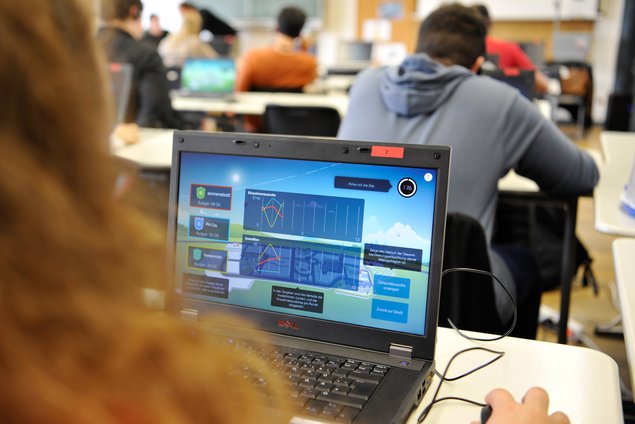
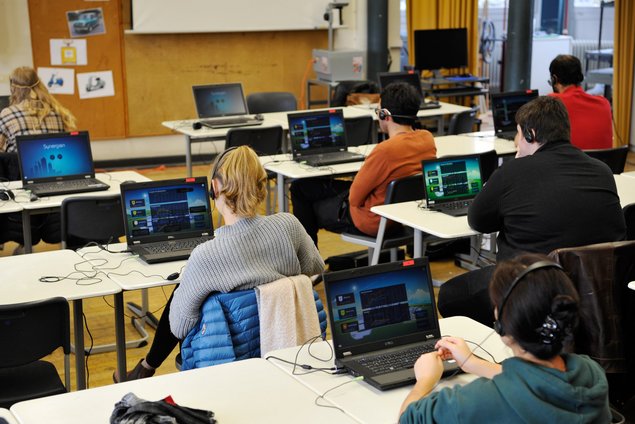
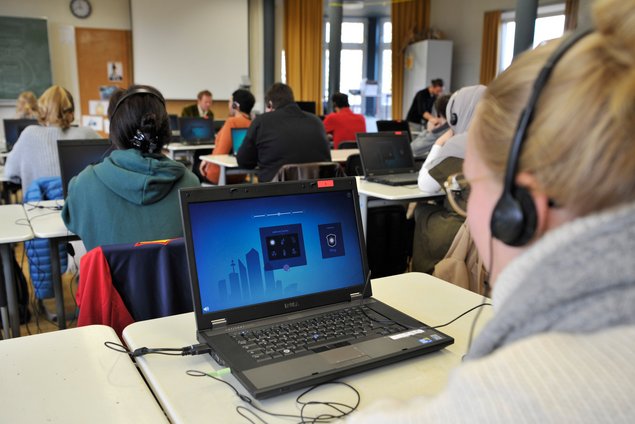
Mobile laboratory in action: Pupils experiment with TU Clausthal